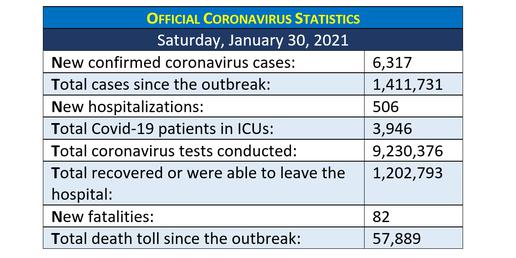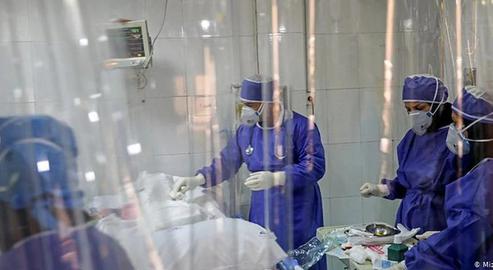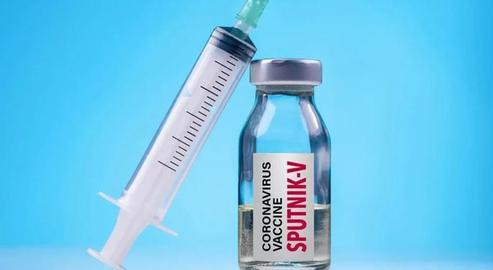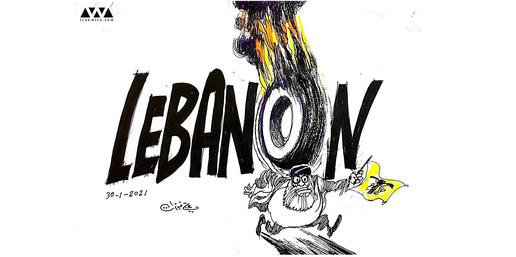Covid-19 news in Iran in recent days has been dominated by a gradual increase in the number of coronavirus infections and warnings about a fourth wave of the pandemic. Meanwhile, more criticisms have been voiced about the decision to buy vaccines from Russia, and Iran has announced new restrictions on travelers who enter Iran.
During a visit to Moscow on January 26, Foreign Minister Mohammad Javad Zarif announced that Iran had approved Russia’s Sputnik V vaccine. The first shipment of the vaccine is due to be imported to Iran by February 11. But Dr. Minoo Mohraz, a member of the National Coronavirus Taskforce’s Scientific Committee, warned against the Russian vaccine. Dr. Mohraz said that the decision to "provide and import the Russian vaccine by our government is a misfortune for our people.”
”In our opinion, a vaccine is standard when it is approved by an international body, one of which is the World Health Organization and the other is the European Medicines Agency of the European Union,” she said, adding that the Russians have been reluctant to share vaccine information.
Meanwhile, health officials said the Iranian-manufactured CovIran-Barekat vaccine was found to be effective against the highly contagious coronavirus variant that has emerged in the UK. “Tests conducted on the blood plasma of three volunteers of the CovIran-Barekat vaccine completely neutralized the mutated coronavirus,” said Hassan Jalili, who is in charge of the team that produces the local vaccine.
This news was confirmed by Dr. Mohraz. “The Health Ministry gave a sample of the British mutated virus that has a 70 percent higher infection rate to researchers and tests on the blood plasma of the first three recipients of CovIran-Barekat showed the virus was completely neutralized,” she said.
Warnings of a Fourth Wave
“We insist on doing something [in the remaining two months of the Iranian Calendar year] so that we do not face a fourth wave of the epidemic,” said President Hassan Rouhani in the weekly meeting of the National Coronavirus Taskforce on January 30. "In the fight against coronavirus our country was alone and we had special restrictions and problems, and today we are facing problems in procuring foreign vaccines.”
“The country is on the brink of a fourth coronavirus wave, and if this peak happens then we are certain to witness more fatalities,” said Dr. Mostafa Moin, president of Iran’s Medical Council. “Medical staff are more exposed to harm and we must not lose our national capital. The reopening of schools and lifting of restrictions would lead to a fourth wave, and therefore the immediate importation of approved vaccines is a necessity.”
Travelers from Europe Must Self-Quarantine
Travelers to Iran from Europe will be required to self-quarantine for two weeks after testing negative upon arrival, Alireza Raeesi, spokesman for the National Coronavirus Taskforce, announced.
Travelers from other regions, including neighboring countries, will have to have tested negative before arrival in the country, he said on state TV, adding that travelers arriving from Europe should carry negative test results, will be tested again and will have to self-quarantine even if their test is negative. Previously people coming from Europe were only required to test negative. The new measures will go into effect “from now on,” Raeesi said.
Provinces Round-up
According to the latest figures from the Health Ministry, currently 18 cities in Iran are in an orange state of alert, 123 cities are on yellow alert and 307 are blue, i.e. the lowest state of alert but not completely free of coronavirus. Health Ministry officials have also reported that the number of outpatients in the major cities of Tehran, Isfahan and Kashan has increased in recent days.
The alert level in three cities of Bandar Abbas, Qeshm and Bastak in Hormozgan has been elevated from blue to yellow, according to Dr. Fatemeh Noroozian, spokeswoman for Hormozgan University of Medical Sciences. She said that in the past week the number of coronavirus outpatients has increased by 15 percent, the number of home quarantines by 15 percent, the number of hospitalizations in the province by 20 percent, and the number of patients in intensive care units by 13 percent.
In the past week a total of seven people with confirmed cases in Hormozgan lost their lives to Covid-19, bringing the official coronavirus death toll in the province since the outbreak to 995. Currently 125 Covid-19 patients are hospitalized across the province, of whom 35 are in ICUs.
Since the start of the epidemic 55 percent of nurses in North Khorasan have been infected with coronavirus, according to Dr. Ghasem Bayani, vice president of North Khorasan University of Medical Sciences. Of the 842 nurses who were infected, 25 needed to be hospitalized. Dr. Bayani did not say if any of the nurses have died, but he also reported that 41 doctors in the province have been infected as well.
In West Azerbaijan 232 new Covid-19 patients were hospitalized in the past 24 hours, 50 percent more than the total number of hospitalizations during the previous 10 days, according to Dr. Javad Aghazadeh, president of West Azerbaijan University of Medical Science, who said that the provincial capital of Urmia has the highest number of hospitalizations. Currently 341 coronavirus patients are hospitalized across the province, 99 of whom are in intensive care units and 26 connected to ventilators.
In Alborz the decline in the number of Covid-19 infections has been reversed and health officials warned that people must comply with health protocols, wear masks, observe social distancing and avoid public spaces if possible to prevent a surge in infections. “In some recent days we have witnessed an increase in the number of outpatients, and if this continues it might lead to an increase in the number of infections, and then, in three weeks’ time, to more fatalities,” said Mehrdad Babaei, spokesman for the Alborz Coronavirus Taskforce. With the death of one more Covid-19 patient in the past 24 hours the death toll in the province has reached 2,663. Currently 285 coronavirus patients are hospitalized in Alborz.
In Qazvin 68 outpatients tested positive for Covid-19 and 19 of them were hospitalized, bringing the total number of hospitalized patients in the province to 169, of whom 20 are on ventilators, according to Qazvin University of Medical Sciences. In the past 24 hours one more coronavirus patient died and the death toll in the province since the coronavirus outbreak began now stands at 1,269. A total of 16,999 Covid-19 patients have been hospitalized in Qazvin.
Iran’s Latest Coronavirus Statistics
In her daily briefing for January 30, Health Ministry spokeswoman Dr. Sima Sadat Lari announced the official coronavirus statistics for the past 24 hours:

visit the accountability section
In this section of Iran Wire, you can contact the officials and launch your campaign for various problems



























comments